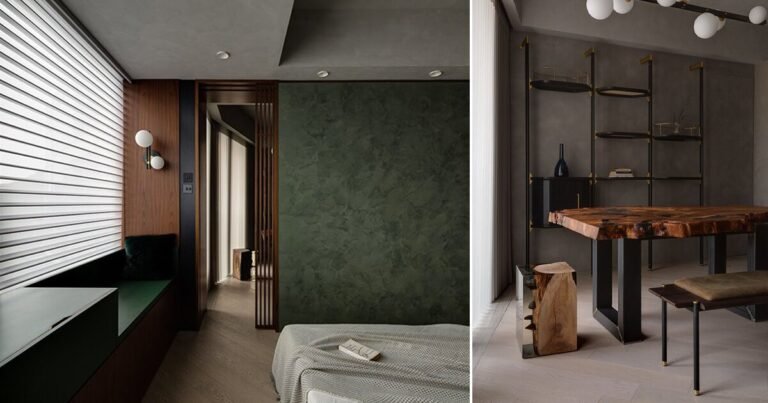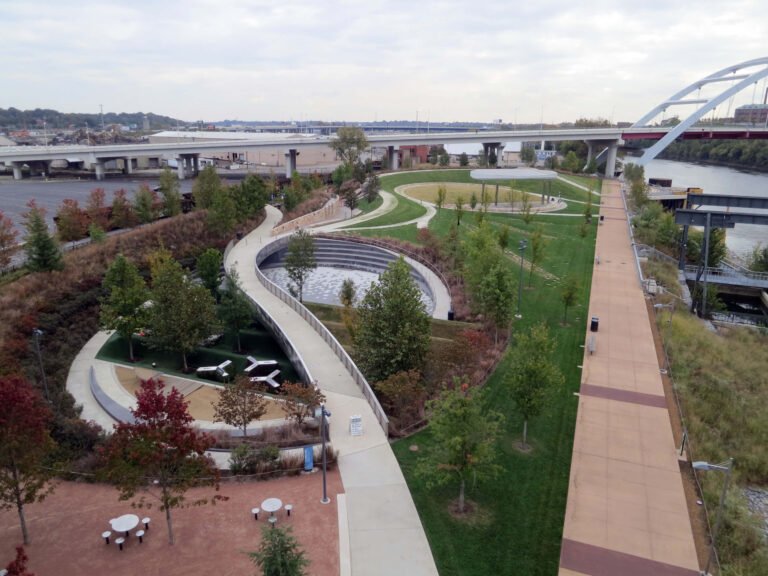kengo kuma shapes gently arched bridge for recovering tsunami-hit town
kengo kuma’s restoration of Minamisanriku
In March 2011, the Tōhoku earthquake and tsunami devastated northeastern Japan, destroying over 120,000 buildings and partially destroying a million more. Since 2013, Kengo Kuma and Associates has been involved in the restoration efforts of Minamisanriku, a small coastal town that was heavily impacted by the natural disaster.
To commemorate these efforts, the Japanese architects teamed up with Pacific Consultants to realize a 80-meter-long pedestrian bridge named ‘Nakabashi’. Designed as a place of prayer, the new bridge connects Minamisanriku Sun Sun Shopping Village, a market also designed by Kengo Kuma after the 2011 tsunami, to Minamisanriku Memorial Park, which honors victims of the disaster.
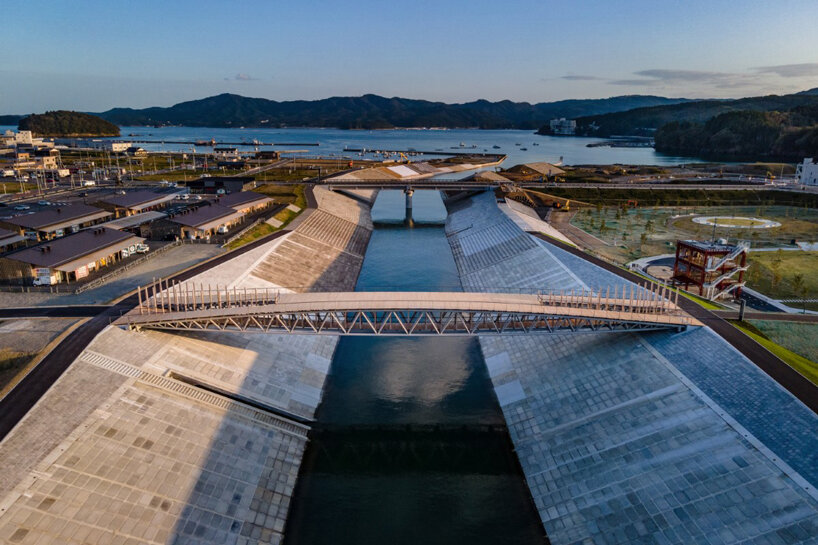
images © ︎Keishin Horikoshi・Kosuke Nakao / SS Tokyo
The architects explain that the gentle arch of Nakabashi bridge echos The Taiko Drum Bridge of Sumiyoshi Taisha Grand Shrine in Osaka, which acts as a connection from the ordinary world to the divine realm. ‘The bridge serves to connect in multiple ways,‘ says Kengo Kuma and Associates.
The slight curve of the bridge is mirrored to generate a lenticular truss structure. While the upper chord arches up and creates a footpath with a view towards the ocean, the mirrored lower chord of the truss dips down close to the surface of the river. The two arches offer different views and experiences of the bridge.
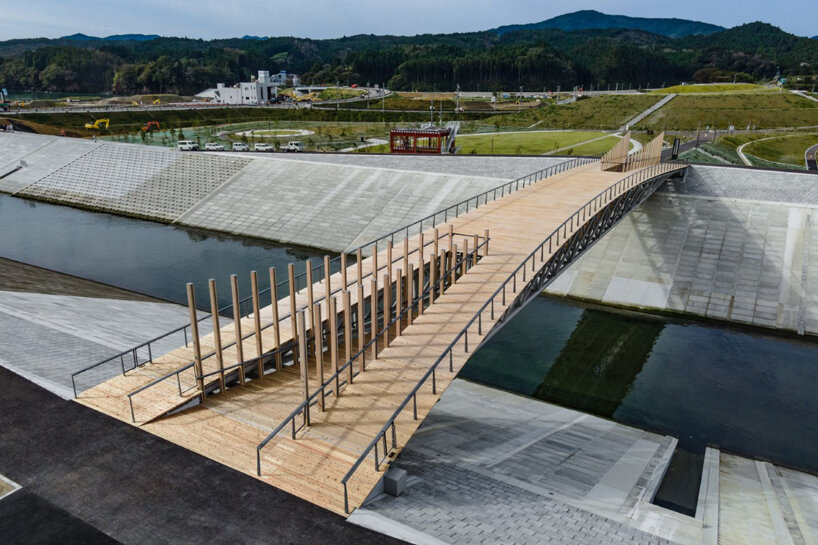
Tall wooden columns connect the gap where the lower and upper paths meet on either end of the bridge. The team says that people from the town have come to view these columns as a ‘torii’ gate, a traditional Japanese gateway found at the entrance of Shintō shrines.
The structure uses a steel truss in a light brown color topped with wooden decking. This combination of materials was chosen to prevent structural deformation and to afford a warm natural atmosphere fit for Minamisanriku.
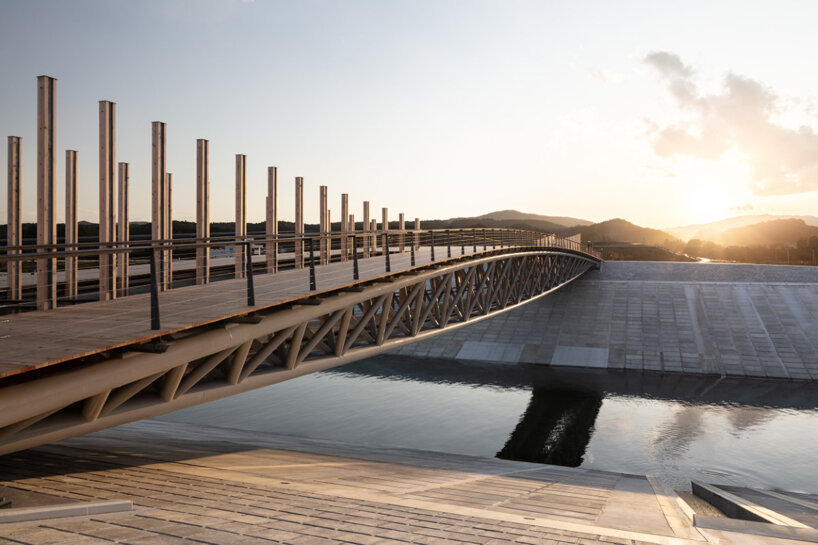
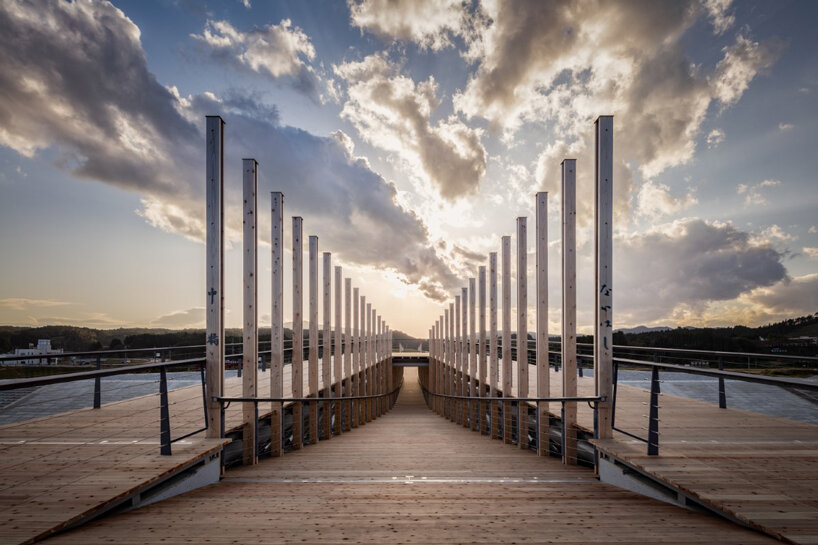
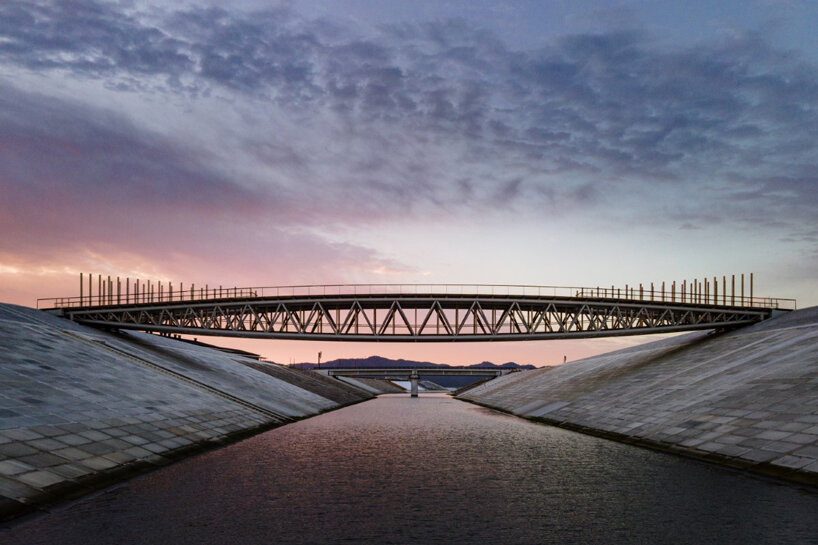
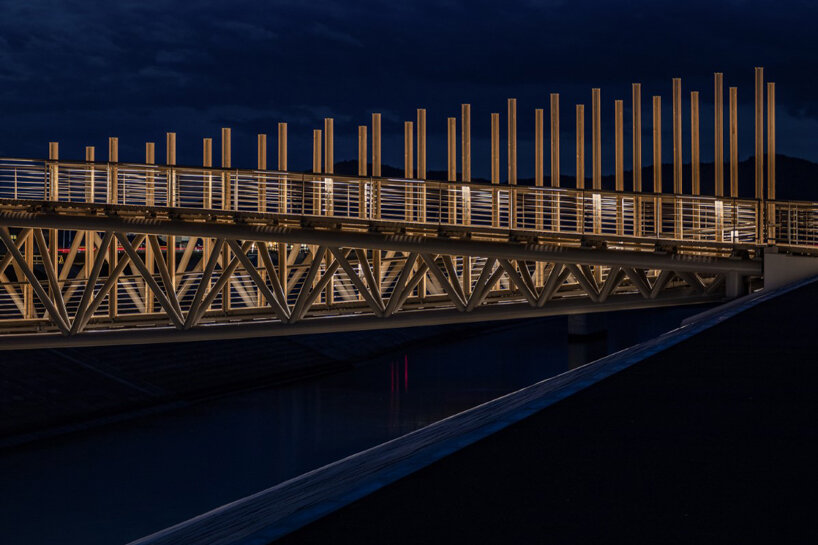
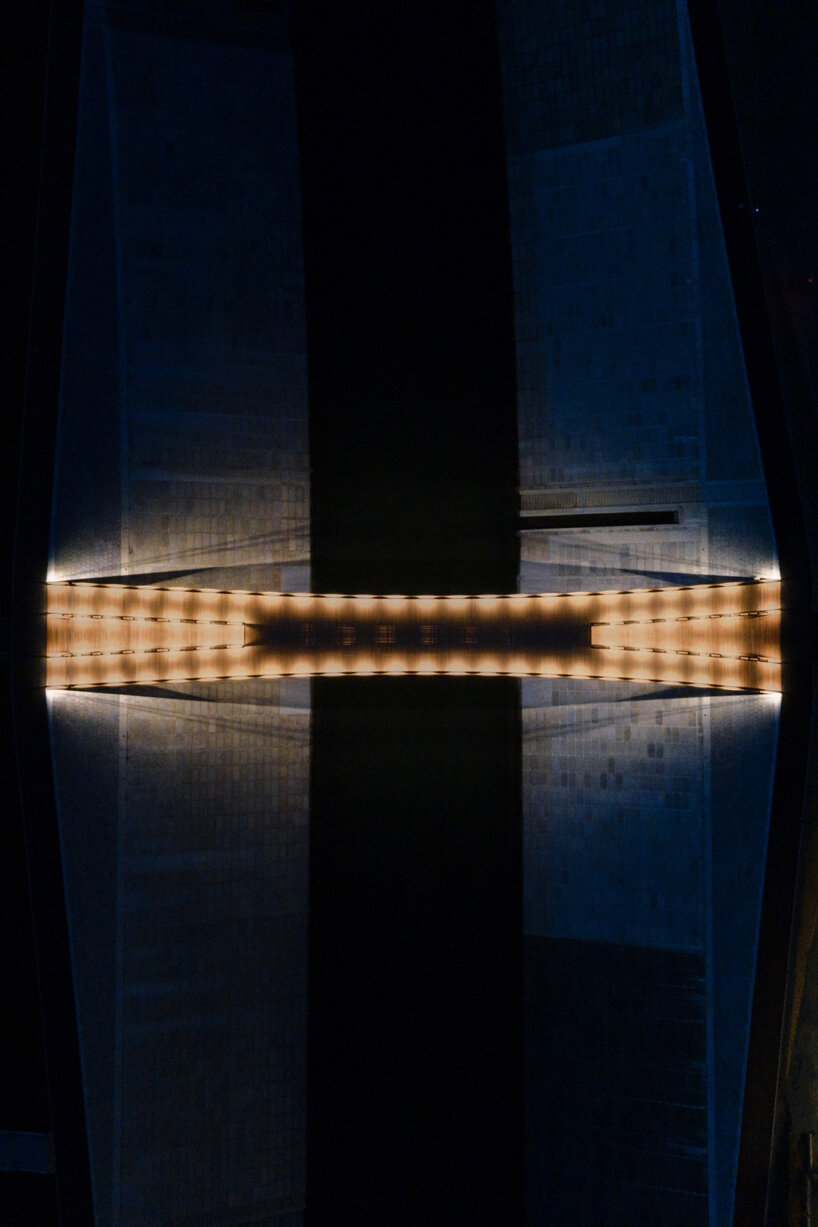
project info:
name: Nakahashi
typology: bridge
location: Minamisanriku, Miyagi, Japan
design: Kengo Kuma and Associates and Pacific Consultants
project team: Kenji Miyahara, Toshiki Meijo, Kousuke Tanaka, Hiroyasu Imai, Adrien Fritz
structural design: Oak Structural Design
completion: September 2020
photography: © ︎Keishin Horikoshi・Kosuke Nakao / SS Tokyo



